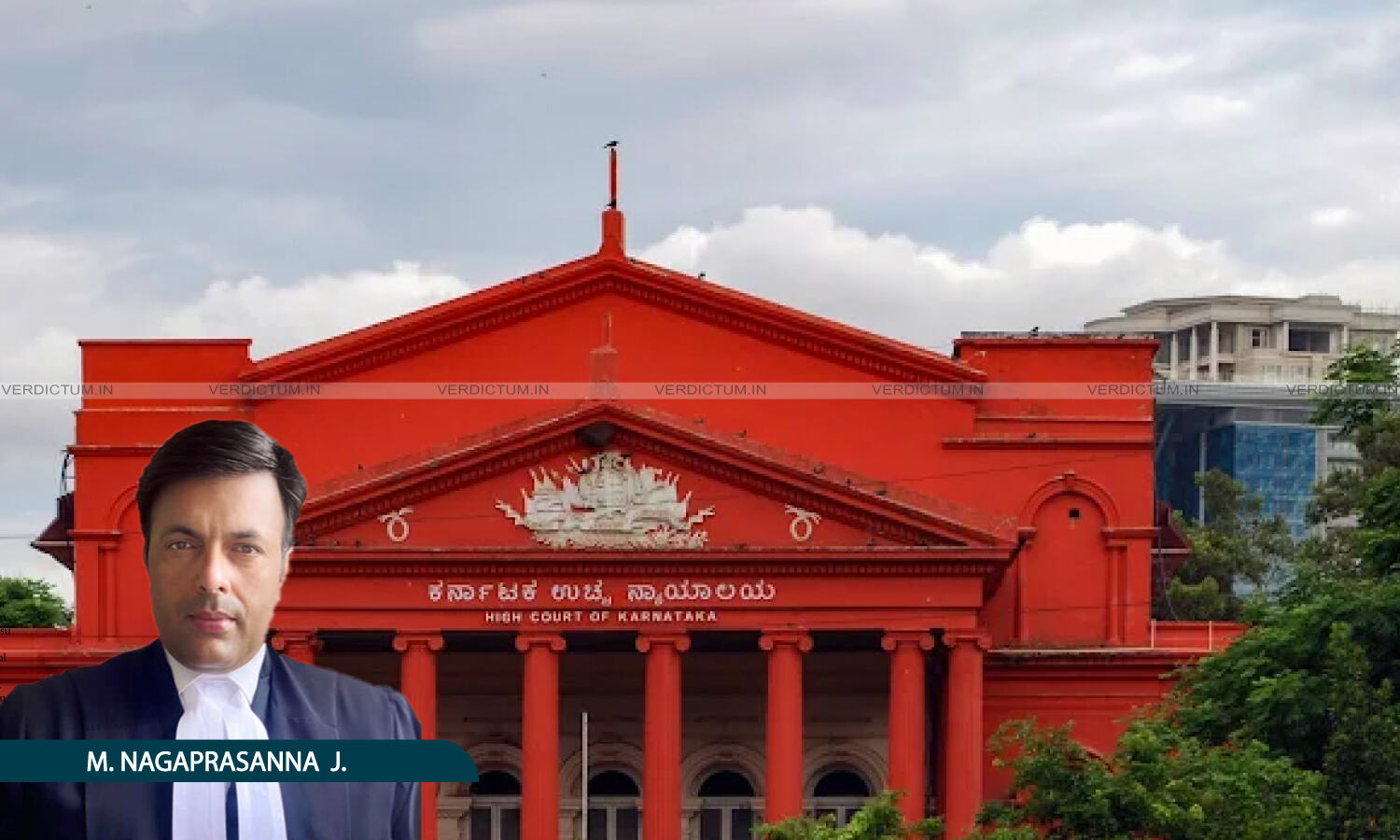Karnataka High Court While Quashing Corruption Case Against BESCOM Driver

The Karnataka High Court observed that the demand and acceptance are sine qua non to the offence under Section 7 of the Prevention of Corruption Act, 1988. The twin pillars of demand and acceptance must be firmly established.
The Petitioner questioned the registration of a crime against him for offence punishable under Section 7(a) of the Prevention of Corruption Act, 1988.
The Bench of Justice M. Provider observed, “The afore-quoted judgments of the Apex Court would clearly indicate that demand and acceptance are sine qua non to the offence under Section 7 of the Act. The twin pillars of demand and acceptance must be firmly established. In the absence of either the edifice of the prosecution crumbles. There is neither demand nor acceptance of bribe by accused No.2. It is not the case of the complainant even that accused No.2 has demanded or accepted.”
Advocate Prashanth S. represented the Petitioner, while Advocate B.B Patil represented the Respondent.
Case Brief
The Petitioner (second accused) was a contract employee working as a Driver, who had joined employment in BESCOM about a month before registration of crime. While the private-respondent, an electrical contractor was the complainant.
The complainant had approached BESCOM on various occasions for conversion of work order that was issued from HT-2B1, commercial tariff, to HT-2A1, industrial tariff. However, the first accused demanded ₹10/- lakhs for the same. As a result, the complainant registered a complaint before the Lokayoukta.
It was the contention of the Petitioner (second accused) that he had been trapped in the case. The Petitioner was asked to come to the office by first accused No.1 and was made to sit outside the cabin for some time, then he was instructed to keep the bag in the car dicky. When the Petitioner was keeping the bag in the boot of the car, the Lokayukta sleuths conducted a trap. Thus, the Petitioner was arrested. The Petitioner questioned the registration of a crime against him for offence punishable under Section 7(a) of the Prevention of Corruption Act, 1988.
It was submitted that the Petitioner had no knowledge about the bribe and he was simply obeying the orders as a driver.
While the Respondent State contended that any person accepting bribe on behalf of a public servant would also become punishable under Section 7(a) of the Act. However, it was admitted by the Respondent State that the bribe was demanded and accepted by the first accused. It was also contended that it was a matter of trial for the Petitioner to come out clean.
Court’s Analysis
The Court noted that there was no word against the Petitioner in the complaint or trap panchnama.
“The entire recording is against accused No.1 who has clearly demanded and accepted the bribe…But, the same cannot be said to accused No.2, a humble Driver who becomes a victim of circumstances of demand and acceptance done by accused No.1”, the Court said.
Further, the Court referred to Section 7(a) of the Act and observed that demand and acceptance are sine qua non to the offence under Section 7 of the Act. The twin pillars of demand and acceptance must be firmly established.
“The prosecution places reliance on explanation 2 to Section 7, which criminalizes acceptance by a third party on behalf of a public servant. Even this provision cannot be stretched to a breaking point, so as to ensnare a contract Driver utterly unaware of the sordid transaction unfolding before him, when he was asked to keep the bag in the boot by accused No.1”, the Court observed.
Resultantly, the Court held that the Petitioner was unnecessarily brought into the frame of the crime, merely because he was present and obeying his superior for placing the bag in the car boot.
The Court was of the opinion that permitting further investigation against the petitioner or even filing of the charge sheet, would be an abuse of the process of law and result in miscarriage of justice.
Accordingly, the Criminal Petition was allowed.
Cause Title: Murali Krishna R. V. State of Karnataka

